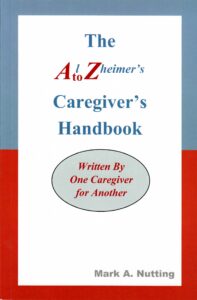When a person living with dementia asks you, “Can I help you?” or “Do you need my help?” The answer is always yes. That is the golden rule to live by when caring for a person living with dementia.
The symptoms of dementia are gradual and happen over the course of many years. Prior to the advancement of symptoms, the person is driving, working, taking care of grand-children, going for a walk, grocery shopping, paying bills, handling finances, doing the laundry, cooking, showering, dressing, eating, brushing teeth, etc. The progression of the symptoms of dementia create concerns of independent ability and safety. Eventually this results in the many losses the person is forced to experience.
Sooner or later, someone takes away the keys so that person is no longer able to drive. The employer lets the person go as he or she is no longer able to perform the duties of the job. The family feels that the grand-children are not safe if the person is watching them alone. A Power of Attorney takes over paying bills and handling finances as the person missed payments and over-drafted the bank account. The caregiver just does the laundry because it is easier and faster. A stranger has now been invited into the house to assure that the person is bathed and groomed appropriately. The family member now prepares all the meals as a result of the person living with dementia burning dinner and the smoke alarm going off.
In addition to the losses mentioned, often times the person experiences family and friends backing away. The family and friends are uncomfortable with the disease. They are uneducated and in fear of communication with the person. They will frequently make excuses as to why they are no longer coming around. The loss of friendship, love, human connection, and sense of belonging are all part of the consequences of living with dementia.
This has been a “downer” blog, so let’s return to my first paragraph. The answer is always yes! As caregivers we are responsible to provide daily opportunity for the person living with dementia to have positive emotional feelings. How do we do that? Well, it is all about knowing the person. You must have the information in order to present the opportunities. Given that you obtained the person’s history, the focus should turn to abilities, strengths, talents, interests, and preferences. If the question is asked “Can I help you?” The answer is “Absolutely.” Then your job is to create the opportunity right then and there. If you truly do not need “help,” make something up. Think creatively as to contributing to the person’s sense of purpose, sense of accomplishment, and sense of self-esteem.







